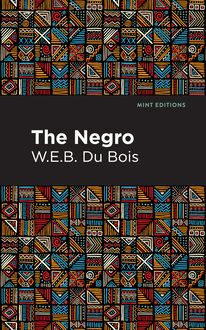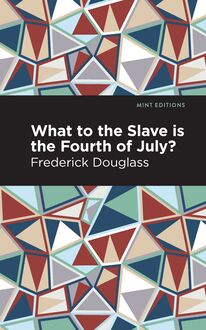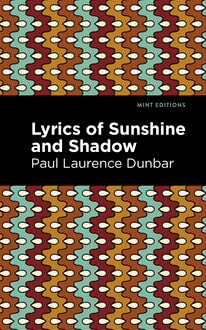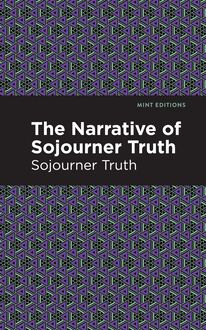-
 Univers
Univers
-
 Ebooks
Ebooks
-
 Livres audio
Livres audio
-
 Presse
Presse
-
 Podcasts
Podcasts
-
 BD
BD
-
 Documents
Documents
-
- Cours
- Révisions
- Ressources pédagogiques
- Sciences de l’éducation
- Manuels scolaires
- Langues
- Travaux de classe
- Annales de BEP
- Etudes supérieures
- Maternelle et primaire
- Fiches de lecture
- Orientation scolaire
- Méthodologie
- Corrigés de devoir
- Annales d’examens et concours
- Annales du bac
- Annales du brevet
- Rapports de stage
La lecture à portée de main
Vous pourrez modifier la taille du texte de cet ouvrage
Découvre YouScribe en t'inscrivant gratuitement
Je m'inscrisDécouvre YouScribe en t'inscrivant gratuitement
Je m'inscrisEn savoir plus
Vous pourrez modifier la taille du texte de cet ouvrage
En savoir plus

Description
The first book by Anna J. Cooper, A Voice From the South, presents strong ideals supporting racial and gender equality as well as economic progress. It’s a forward-thinking narrative that highlights many disparities hindering the African American community.
Anna J. Cooper was an accomplished educator who used her influence to encourage and elevate African Americans. With A Voice From the South, she delivers a poignant analysis of the country’s affairs as they relate to Black people, specifically Black women. She stresses the importance of education, which she sees as a great equalizer. Cooper considers it a necessary investment in not only the individual but the community. She also criticizes the depictions of African Americans in literature by some of the day’s most popular authors. She calls for more realistic portrayals that are both honest yet positive.
Cooper provides an unflinching critique of mainstream America as it relates to the Black population. A Voice From the South broaches pivotal topics such as women’s rights, segregation and the need for higher education.
With an eye-catching new cover, and professionally typeset manuscript, this edition of A Voice From the South is both modern and readable.
Sujets
Informations
| Publié par | Mint Editions |
| Date de parution | 02 mars 2021 |
| Nombre de lectures | 0 |
| EAN13 | 9781513279084 |
| Langue | English |
| Poids de l'ouvrage | 1 Mo |
Informations légales : prix de location à la page 0,0450€. Cette information est donnée uniquement à titre indicatif conformément à la législation en vigueur.
Extrait
A Voice From the South
Anna J. Cooper
A Voice From the South was first published in 1892.
This edition published by Mint Editions 2021.
ISBN 9781513278629 | E-ISBN 9781513279084
Published by Mint Editions®
minteditionbooks.com
Publishing Director: Jennifer Newens
Design & Production: Rachel Lopez Metzger
Project Manager: Micaela Clark
Typesetting: Westchester Publishing Services
C ONTENTS O UR R AISON D’ ÊTRE P ART F IRST —S OPRANO O BLIGATO W OMANHOOD A V ITAL E LEMENT IN THE R EGENERATION AND P ROGRESS OF A R ACE T HE H IGHER E DUCATION OF W OMEN “W OMAN V ERSUS THE I NDIAN ” T HE S TATUS OF W OMAN IN A MERICA P ART S ECOND —T UTTI AD L IBITUM H AS A MERICA A R ACE P ROBLEM ; I F S O , H OW C AN IT B EST BE S OLVED ? O NE P HASE OF A MERICAN L ITERATURE W HAT ARE WE W ORTH ? T HE G AIN FROM A B ELIEF
O UR R AISON D’ ÊTRE
I n the clash and clatter of our American Conflict, it has been said that the South remains Silent. Like the Sphinx she inspires vociferous disputation, but herself takes little part in the noisy controversy. One muffled strain in the Silent South, a jarring chord and a vague and uncomprehended cadenza has been and still is the Negro. And of that muffled chord, the one mute and voiceless note has been the sadly expectant Black Woman,
An infant crying in the night,
An infant crying for the light;
And with no language—but a cry .
The colored man’s inheritance and apportionment is still the sombre crux, the perplexing cul de sac of the nation,—the dumb skeleton in the closet provoking ceaseless harangues, indeed, but little understood and seldom consulted. Attorneys for the plaintiff and attorneys for the defendant, with bungling gaucherie have analyzed and dissected, theorized and synthesized with sublime ignorance or pathetic misapprehension of counsel from the black client. One important witness has not yet been heard from. The summing up of the evidence deposed, and the charge to the jury have been made—but no word from the Black Woman.
It is because I believe the American people to be conscientiously committed to a fair trial and ungarbled evidence, and because I feel it essential to a perfect understanding and an equitable verdict that truth from each standpoint be presented at the bar,—that this little Voice has been added to the already full chorus. The “other side” has not been represented by one who “lives there.” And not many can more sensibly realize and more accurately tell the weight and the fret of the “long dull pain” than the open-eyed but hitherto voiceless Black Woman of America.
The feverish agitation, the perfervid energy, the busy objectivity of the more turbulent life of our men serves, it may be, at once to cloud or color their vision somewhat, and as well to relieve the smart and deaden the pain for them. Their voice is in consequence not always temperate and calm, and at the same time radically corrective and sanatory. At any rate, as our Caucasian barristers are not to blame if they cannot quite put themselves in the dark man’s place, neither should the dark man be wholly expected fully and adequately to reproduce the exact Voice of the Black Woman.
Delicately sensitive at every pore to social atmospheric conditions, her calorimeter may well be studied in the interest of accuracy and fairness in diagnosing what is often conceded to be a “puzzling” case. If these broken utterances can in any way help to a clearer vision and a truer pulse-beat in studying our Nation’s Problem, this Voice by a Black Woman of the South will not have been raised in vain.
T AWAWA C HIMNEY C ORNER
S EPT . 17, 1892
PART FIRST
SOPRANO OBLIGATO
For they the Royal-hearted Women are
Who nobly love the noblest, yet have grace
For needy, suffering lives in lowliest place;
Carrying a choicer sunlight in their smile,
The heavenliest ray that pitieth the vile.
· · · · ·
Though I were happy, throned beside the king,
I should be tender to each little thing
With hurt warm breast, that had no speech to tell
Its inward pangs; and I would soothe it well
With tender touch and with a low, soft moan
For company.
—George Eliot
1 W OMANHOOD A V ITAL E LEMENT IN THE R EGENERATION AND P ROGRESS OF A R ACE
T he two sources from which, perhaps, modern civilization has derived its noble and ennobling ideal of woman are Christianity and the Feudal System.
In Oriental countries woman has been uniformly devoted to a life of ignorance, infamy, and complete stagnation. The Chinese shoe of to-day does not more entirely dwarf, cramp, and destroy her physical powers, than have the customs, laws, and social instincts, which from remotest ages have governed our Sister of the East, enervated and blighted her mental and moral life.
Mahomet makes no account of woman whatever in his polity. The Koran, which, unlike our Bible, was a product and not a growth, tried to address itself to the needs of Arabian civilization as Mahomet with his circumscribed powers saw them. The Arab was a nomad. Home to him meant his present camping place. That deity who, according to our western ideals, makes and sanctifies the home, was to him a transient bauble to be toyed with so long as it gave pleasure and then to be thrown aside for a new one. As a personality, an individual soul, capable of eternal growth and unlimited development, and destined to mould and shape the civilization of the future to an incalculable extent, Mahomet did not know woman. There was no hereafter, no paradise for her. The heaven of the Mussulman is peopled and made gladsome not by the departed wife, or sister, or mother, but by houri —a figment of Mahomet’s brain, partaking of the ethereal qualities of angels, yet imbued with all the vices and inanity of Oriental women. The harem here, and—“dust to dust” hereafter, this was the hope, the inspiration, the summum bonum of the Eastern woman’s life! With what result on the life of the nation, the “Unspeakable Turk,” the “sick man” of modern Europe can to-day exemplify.
Says a certain writer: “The private life of the Turk is vilest of the vile, unprogressive, unambitious, and inconceivably low.” And yet Turkey is not without her great men. She has produced most brilliant minds; men skilled in all the intricacies of diplomacy and statesmanship; men whose intellects could grapple with the deep problems of empire and manipulate the subtle agencies which check-mate kings. But these minds were not the normal outgrowth of a healthy trunk. They seemed rather ephemeral excrescencies which shoot far out with all the vigor and promise, apparently, of strong branches; but soon alas fall into decay and ugliness because there is no soundness in the root, no life-giving sap, permeating, strengthening and perpetuating the whole. There is a worm at the core! The homelife is impure! and when we look for fruit, like apples of Sodom, it crumbles within our grasp into dust and ashes.
It is pleasing to turn from this effete and immobile civilization to a society still fresh and vigorous, whose seed is in itself, and whose very name is synonymous with all that is progressive, elevating and inspiring, viz., the European bud and the American flower of modern civilization.
And here let me say parenthetically that our satisfaction in American institutions rests not on the fruition we now enjoy, but springs rather from the possibilities and promise that are inherent in the system, though as yet, perhaps, far in the future.
“Happiness,” says Madame de Stael, “consists not in perfections attained, but in a sense of progress, the result of our own endeavor under conspiring circumstances toward a goal which continually advances and broadens and deepens till it is swallowed up in the Infinite.” Such conditions in embryo are all that we claim for the land of the West. We have not yet reached our ideal in American civilization. The pessimists even declare that we are not marching in that direction. But there can be no doubt that here in America is the arena in which the next triumph of civilization is to be won; and here too we find promise abundant and possibilities infinite.
Now let us see on what basis this hope for our country primarily and fundamentally rests. Can any one doubt that it is chiefly on the homelife and on the influence of good women in those homes? Says Macaulay: “You may judge a nation’s rank in the scale of civilization from the way they treat their women.” And Emerson, “I have thought that a sufficient measure of civilization is the influence of good women.” Now this high regard for woman, this germ of a prolific idea which in our own day is bearing such rich and varied fruit, was ingrafted into European civilization, we have said, from two sources, the Christian Church and the Feudal System. For although the Feudal System can in no sense be said to have originated the idea, yet there can be no doubt that the habits of life and modes of thought to which Feudalism gave rise, materially fostered and developed it; for they gave us chivalry, than which no institution has more sensibly magnified and elevated woman’s position in society.
Tacitus dwells on the tender regard for woman entertained by these rugged barbarians before they left their northern homes to overrun Europe. Old Norse legends too, and primitive poems, all breathe the same spirit of love of home and veneration for the pure and noble influence there presiding—the wife, the sister, the mother.
And when later on we see the settled life of the Middle Ages “oozing out,” as M. Guizot expresses it, from the plundering and pillaging life of barbarism and crystallizing into the Feudal System, the tiger of the field is brought once more within the charmed circle of the goddesses of his castle, and his imagination weaves around them a halo whose reflection possibly has not yet altogether vanished.
It is true the spirit of Christianity had not yet put the seal of catholicity on this sentiment. C
-
 Univers
Univers
-
 Ebooks
Ebooks
-
 Livres audio
Livres audio
-
 Presse
Presse
-
 Podcasts
Podcasts
-
 BD
BD
-
 Documents
Documents
-
Jeunesse
-
Littérature
-
Ressources professionnelles
-
Santé et bien-être
-
Savoirs
-
Education
-
Loisirs et hobbies
-
Art, musique et cinéma
-
Actualité et débat de société
-
Jeunesse
-
Littérature
-
Ressources professionnelles
-
Santé et bien-être
-
Savoirs
-
Education
-
Loisirs et hobbies
-
Art, musique et cinéma
-
Actualité et débat de société
-
Actualités
-
Lifestyle
-
Presse jeunesse
-
Presse professionnelle
-
Pratique
-
Presse sportive
-
Presse internationale
-
Culture & Médias
-
Action et Aventures
-
Science-fiction et Fantasy
-
Société
-
Jeunesse
-
Littérature
-
Ressources professionnelles
-
Santé et bien-être
-
Savoirs
-
Education
-
Loisirs et hobbies
-
Art, musique et cinéma
-
Actualité et débat de société
- Cours
- Révisions
- Ressources pédagogiques
- Sciences de l’éducation
- Manuels scolaires
- Langues
- Travaux de classe
- Annales de BEP
- Etudes supérieures
- Maternelle et primaire
- Fiches de lecture
- Orientation scolaire
- Méthodologie
- Corrigés de devoir
- Annales d’examens et concours
- Annales du bac
- Annales du brevet
- Rapports de stage




















